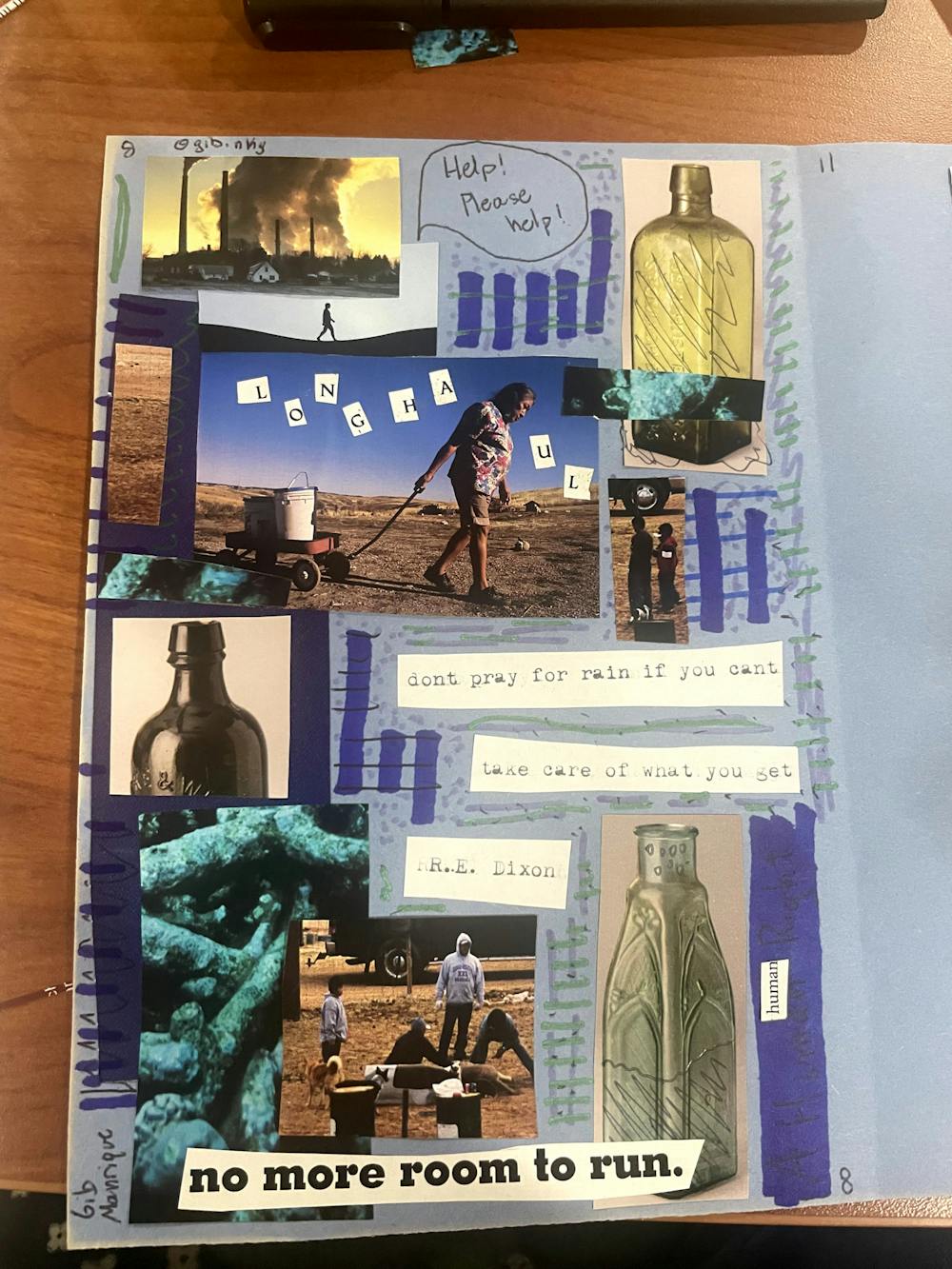Environmental justice organizations Fuerte Arts Movement and Chispa Arizona hosted a series of collaborative events to educate the public about water rights and conservation.
Hosted at Wasted Ink Zine Distro, the “Rainwater Harvesting: Page to Press Workshop” educational events shared the impact of individual water conservation efforts, specifically rainwater harvesting.
Rainwater harvesting is a technique that involves collecting and storing rainwater that runs off of rooftops, roads, and other surfaces.
“We decided to do our rainwater harvesting project because we noticed the importance of collecting water here in Phoenix, and no one is doing it,” said Julian Zepeda, a community organizer at Chispa Arizona. “We wanted to be able to bring that conservation culture to Phoenix.”
Throughout the last decade, rainwater harvesting methods have steadily increased in usage, according to research done by the Watershed Management Group, an organization based in Tucson. About 2.6 billion gallons of water have been saved through conservation efforts in Tucson, and residential water use has dropped by about 30% over the last 24 years.
During the event, Fuerte Arts Movement and Chispa Arizona educated the public about these techniques by hosting speakers and holding a workshop to create zines that showed harvest rainwater instructions. The zines will be printed and kept at Wasted Ink Zine Distro, a nonprofit zine library in downtown Phoenix.
A zine is a do-it-yourself magazine-like booklet printed and distributed in limited quantities. A zine is non-commercially printed and often reflects a certain passion or interest of the creator. Due to the inexpensive nature of zines, they are often used for educational purposes.
“(Zines) are all about freedom to express yourself and enhance a movement,” said Charissa Lucille, the owner and founder of Wasted Ink Zine Distro. “They exist physically, in order to be freely passed around to people in political and educational movements like this one.”
Zines have been connected to historical political and social justice movements, such as the Harlem Renaissance, Lucille explained.
Leaders at both Fuerte Arts Movement and Chispa Arizona said they hope to teach the importance of harvesting for people of color and those in underprivileged communities. The Latinx-led organizations focus on building power within the community, specifically through environmental and housing rights.
Fuerte Arts Movement and Chispa Arizona cited reports from DigDeep, a non-profit dedicated to bringing clean water to Americans, that showed communities of color throughout the United States are less likely to have consistent access to drinking water, especially with the rise of climate change.
According to DigDeep, a human rights nonprofit organization, Black and Latinx households with Black and Latinx members are about twice as likely as white households to not have full indoor plumbing, while Indigenous American households are about 19 times as likely. Also, 17 percent of people in rural areas have had trouble obtaining potable water nationwide.
“If you see on an overhead map of the Phoenix metro area, the communities that lack trees or lack water are usually the poorer communities or the Black and brown communities,” said Melissa Acevedo, a member of Chispa Arizona.
“(Harvesting rainwater) goes back to our Indigenous roots because all the canals that you see in Arizona were made by Indigenous people,” Acevedo said. “They were funneling the rainwater in order to use it for their crops or drinking water… we’re honoring those roots.”
The members of Fuerte Arts Movement and Chispa Arizona hope Phoenix residents research rainwater harvesting and understand that a lack of access to drinking water disproportionately affects people of color.
“Communities of color, people of lower income… don’t have access to natural resources due to pollution around the wetlands,” Zepeda said. “It’s an issue that needs to be addressed.”

